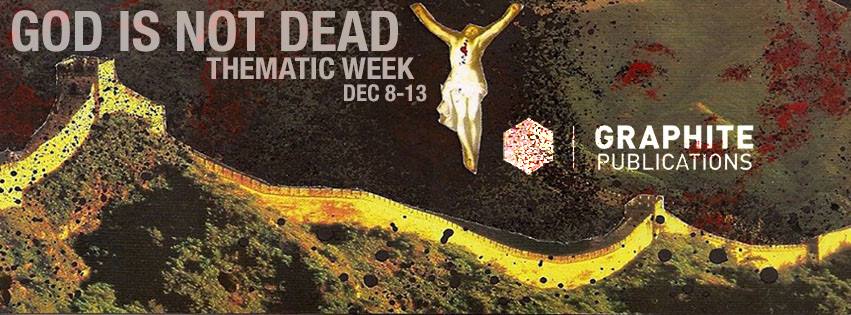In a world far far away a game of competitive ping-pong is being played. All seems well and good, until the referee is believed dead and a replacement is brought in. All of a sudden a game that has been played for well over 10,000 years is radically reconsidered when the new ref begins arbitrating the game according to rules traditionally associated with the game of wrestling. The referee is left speechless by what he sees, he literally #can’teven, and ridicules the game and its rules behind a self-satisfied smug. Wrestling with paddles and no shirts on, UNTHINKABLE!!! But most frustrating for Mr. ref is the refusal and inability of the players to see ping-pong for what it really is: failed wrestling.
This anecdote, though pathetic and simple, gives us a context by which to examine the wackness of atheism.
On one level, the atheist we encounter day-to-day says (with a slightly idiotic tone): “Ok, so you’re telling me that there is a big man in the sky who, like, controls things on earth…that’s so stupid bro”, or if you rather: “an omniscient being who rules for eternity and is the ontological causal factor is unprovable and unscientific”. Now this tendency to anthropomorphize and articulate a vision of god with king-like and earthly powers is a reduction and simplification of religion, and this says far more about the atheist than the believer. While there are undoubtedly a good number of religious people who have come to understand their God in this way, it is historically a perversion and obfuscation of what has traditionally been practiced and believed.
Within a more formal academic context, scientists like the astrophysicist Lawrence Krauss tell us that religion and philosophy are outdated and unnecessary in light of developments in bioethics, astrophysics, and cosmology. His theory, which prevails and grows popular to this day, tells us that the traditionally unanswerable WHY is unanswerable no longer. This WHY, related to the Big Bang Theory, has for scientists traditionally been the last bastion for religiosity. Why did the Big Bang Theory occur? How did two things come together to lead to the various forces and collisions which produced all that is in this universe? Krauss’ answer is 240 pages long, but is essentially: something came from nothing, and not only can something arise from nothing, but that something will ALWAYS arise from nothing.
Does anybody else smell religion masquerading as science? Science’s frustrations at answering only the HOWs and not the WHYs is not something that can be overcome, for this limit is inherent. The scientific method can, with staggering progress and speed, answer more and more of the HOWs of biological, physical and chemical life. This sudden and unfounded desire to begin scaling the WHYs is a product of the cultish attitude which any invariably affects any overachieving field. If my memory serves me well, it was exactly this type of attitude, this sense of omniscience if you will, which was to lead to the downfall of religion’s legitimacy. Now we find science in the midst of reaching cult levels, therefore falling prey to the same hubris which enabled its popularity. In other words, while religion lost much of its authority in its mission to answer the HOWs, science is undergoing a similar loss of legitimacy in its mission to answer the WHYs.
Where does that leave us? What happens when someone asks you to prove that God exists? Well to begin with, you will find only futility and fallacy if you look for religion within the territory of science. Using the rules of science in matters of religion is useless and untruthful. So when someone asks you to prove God’s existence, in essence, what they are asking is for you to use the laws of science; proof is a method and tool of science — not the only way of knowing. And if they ask you to articulate what God is, once again they are asking you to prove God in the language of energy and matter (biology, chemistry and physics).
If religion is to be anything, it must be a feeling. Not a whimper, not a smile but a transcendence. Religion exists not in the word but in the sensation of being. It exists at a sunset and a sunrise, during a snowfall and a rainstorm. Religion is not the answer to these forces, but it is to be experienced in their presence. Religion can be articulated only in the language of being and acting; it is not to be proved but rather to be experienced through faith and understanding. Religion is hard and in many ways keeps us from fulfilling our basic desires. Our desire to know more and more, our proclivity toward answers and not questions, as well as our compulsion for preeminence as opposed to striving for humility all lead us to uphold science over religion. Science fulfills these desires, in turn providing us with a pseudo-certain bravado which comforts the living but not the dying.
BY ROBERT CHAKA



